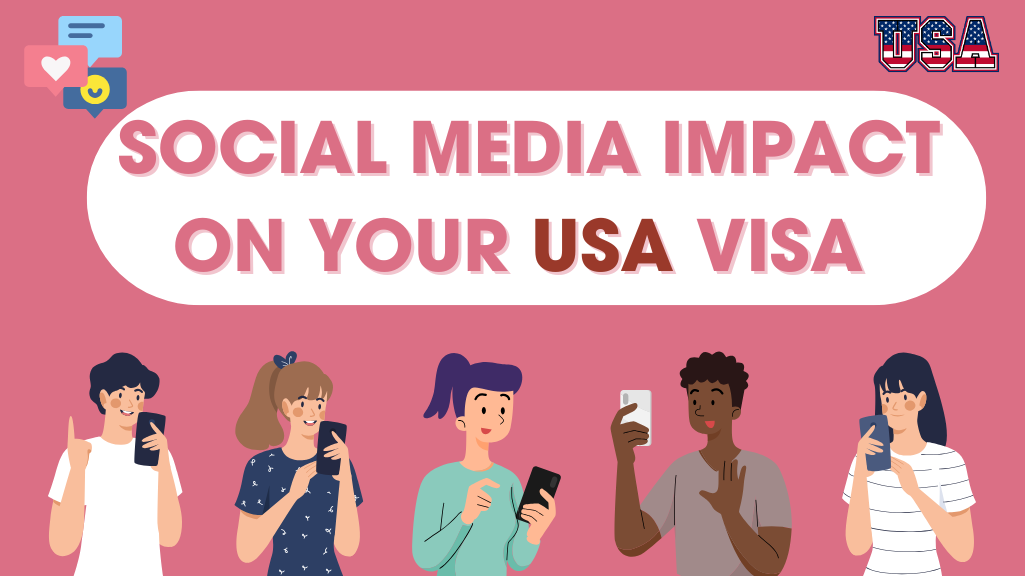In today’s digital age, your online presence speaks volumes about you. Whether it’s the photos you share, the posts you comment on, or the connections you make, everything you do on social media can potentially impact your life in ways you might not expect. One of the most significant ways social media can affect your life is during your application for a U.S. visa.
Since 2019, the U.S. government has been incorporating social media information into the visa application process for foreign nationals applying for non-immigrant and immigrant visas. While social media was once seen as just a way to connect with friends or share personal updates, it’s now something much bigger—it’s a tool that helps government agencies assess whether you pose any potential security risks. But just how big of an impact can your social media use have on your U.S. visa approval?
Let’s discuss this topic and break down what you need to know.
Social Media Requirement for U.S. Visa Applicants
In 2019, the U.S. Department of State (DOS) made it mandatory for all visa applicants—whether they’re applying for a temporary visitor visa or an immigrant visa—to disclose their social media accounts from the past five years. This includes the usernames or handles associated with any social media platforms they’ve used during that time. The information has to be provided when filling out Form DS-160 (for non-immigrant visas) or DS-260 (for immigrant visas), both of which are part of the visa application process.

To clarify, applicants aren’t asked to provide passwords or private information, just the account names and the platforms they’ve used. This means if you've posted on Facebook, Instagram, Twitter, LinkedIn, or even lesser-known platforms like Qzone or Weibo, those accounts should be disclosed. If you haven’t used social media in the past five years, you can select "None" on the application form, but you must be truthful. Lying about your social media usage could land you in serious trouble.
Check this out: What is the Best Visa for You in the USA?
Why Is the U.S. Asking for Social Media Information?
The U.S. government has made it clear that the collection of social media information is part of an effort to strengthen national security. According to the DOS, these additional questions help identify any potential threats, particularly in relation to terrorism, extremism, and other national security concerns. The goal is to "more rigorously evaluate applicants for terrorism or other national security-related visa ineligibilities."
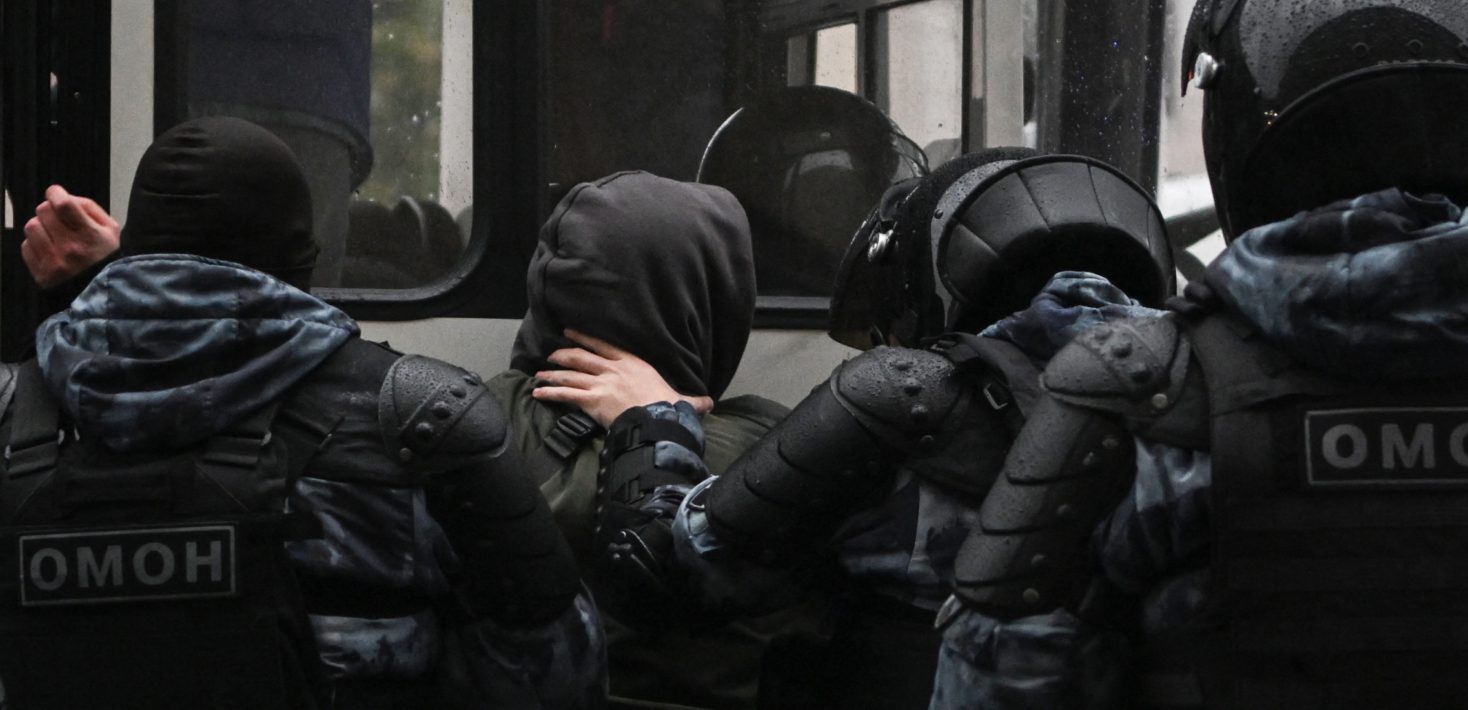
In a New York Times article, a DOS spokesperson further clarified that the requirement aligns with U.S. policy aimed at protecting American citizens. With growing concerns about security threats, such as radicalization and the recruitment of terrorists, social media has become a vital tool for authorities to assess the risk posed by visa applicants. Public posts on social platforms can sometimes reveal red flags that might not otherwise be captured through traditional background checks.
How Social Media Could Affect Your Visa Application
Your social media activity might seem trivial to you, but to immigration authorities, every post, tweet, or picture can be a piece of the puzzle that helps them assess your eligibility for a U.S. visa. Here’s how it can impact your visa approval:
1. National Security Concerns
If your posts suggest any connection to terrorism, extremism, or hate groups, your application could be flagged for further investigation. While sarcastic comments or humor might not be taken literally, it’s important to understand that immigration officers are trained to look for red flags. Even a comment jokingly supporting violence or making light of a serious situation could be misinterpreted as a sign of potential threats.
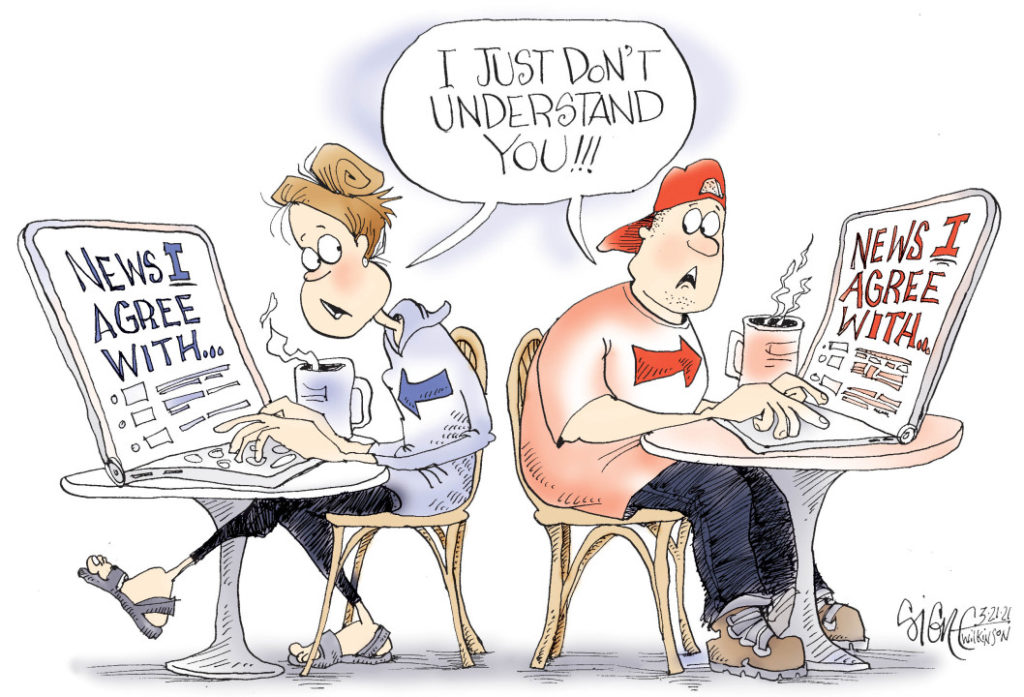
According to a 2021 report by the Center for Strategic and International Studies, extremist content has been growing across social media platforms. While most people’s posts won’t raise red flags, those with suspicious content—like violent rhetoric, extremist group affiliations, or glorification of terrorism—could see their visa application delayed or denied.
2. Criminal Activity
If your social media reveals involvement in criminal activity—whether it’s illegal behavior, gang affiliation, or violent actions—your application could be denied. Immigration authorities take an inclusive view of an applicant’s past, and social media is a key component of this evaluation.
For example, in 2020, the U.S. government rejected over 200 visa applications based on findings from social media analysis. While these were mostly related to criminal activity or national security threats, the key takeaway is that social media can and does play a role in these decisions.
3. Inconsistencies in Information
Immigration authorities will cross-check the information you provide on your visa application with your social media profiles. If your application lists one employment history, but your LinkedIn profile or Facebook shows something completely different, this could be seen as a discrepancy.
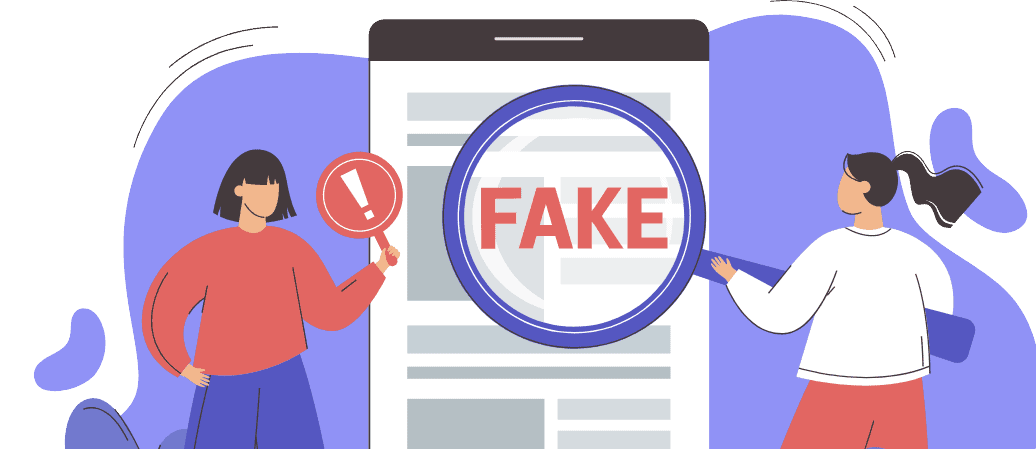
In a notable case in 2022, an applicant was denied a visa after U.S. consular officers discovered that the applicant had falsely stated their place of employment on their DS-160 form. However, a quick scan of their social media showed evidence of their actual employment elsewhere, leading to the visa rejection.
4. Public Perception and Your Reputation
Sometimes, it’s not about national security threats or criminal activity, but about how your social media activity is perceived. For example, if you post regularly about political causes or demonstrate strong support for controversial topics, it could raise questions about your intentions in the U.S.
While the U.S. has no official ban on political opinions, applicants with extreme views—especially those expressing radical or divisive opinions—might be surveyed more closely. A study conducted by the Pew Research Center found that roughly 60% of U.S. visa applicants who posted extremist content or supported controversial causes faced extra scrutiny.
Check : What Documents Do You Need For US Visa Processing?
5. Fake Information Finding Out
It is a regular practice, for getting a US visa staged marriage has been conducted which is a crime still they can not be given punishment later. If they have your social media handle then they can look for posts or engagement level with your partner if you claim to be married. You got the idea, right? It’s just not about marriage, rather more vast. Social media interaction can identify many fakeness or mismatch.

The Role of Social Media in Visa Denials
The impact of social media on visa denials cannot be overstated. In 2019 alone, the U.S. government cited social media as a contributing factor in thousands of visa denials. While most visa denials are related to national security issues or criminal activity, social media scrutiny has played a role in denying visas for applicants with any potential connection to extremist views or organizations.
For example, in 2020, the U.S. Department of Homeland Security reported that social media played a part in denying the visas of over 1,000 applicants due to issues like extremist views, gang affiliation, or terrorist-related activities. The Department of State has stated that such measures are essential for ensuring that individuals entering the U.S. are not a threat to public safety.
What Social Media Platforms Are Monitored?
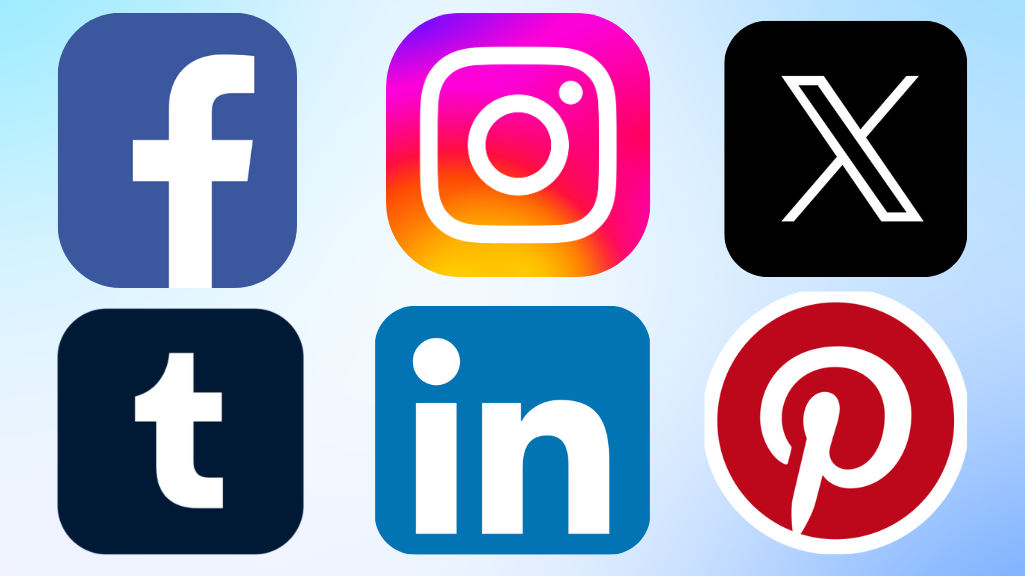
The U.S. Department of State collects information about the social media platforms listed by applicants, and there are several popular platforms included in the visa application forms. These platforms include:
- YouTube
- Tumblr
- Vkontakte (VK)
- Qzone (QQ)
- Douban
If you’ve used any of these platforms, or others within the last five years, you must list your usernames or handles on your visa application. If you haven’t used any of these platforms in the past five years, you can select “None.”
See also: What Should You Do After Accepting Your Visa?
Privacy and Security Considerations
While the U.S. doesn’t require passwords, applicants may wonder about the privacy implications of sharing their social media usernames and handles. After all, social media accounts often contain personal information, including photos, locations, and personal history.

The U.S. government has stated that only publicly available content will be reviewed, and applicants aren’t required to hand over private content, including direct messages or password-protected posts. However, some applicants may choose to take additional precautions before submitting their applications:
- Increase Privacy Settings: Tightening the privacy settings on your social media accounts can help limit who can see your posts. Some platforms allow you to make your account private or limit visibility to certain people, so this is something to consider before applying for a visa.
- Delete Potentially Problematic Content: If you’re worried that certain posts might hurt your chances of approval, you may want to review and delete any content that could be misinterpreted.
- Be Honest: Always be truthful about your social media use. Falsifying information about your accounts could be seen as immigration fraud, which carries severe consequences, including permanent ineligibility for U.S. entry.
The key takeaway here is that you should be mindful of what you post online, especially if you’re planning to apply for a U.S. visa. Social media is being used more and more by authorities as a screening tool, and what you share online can either make or break your chances of approval.
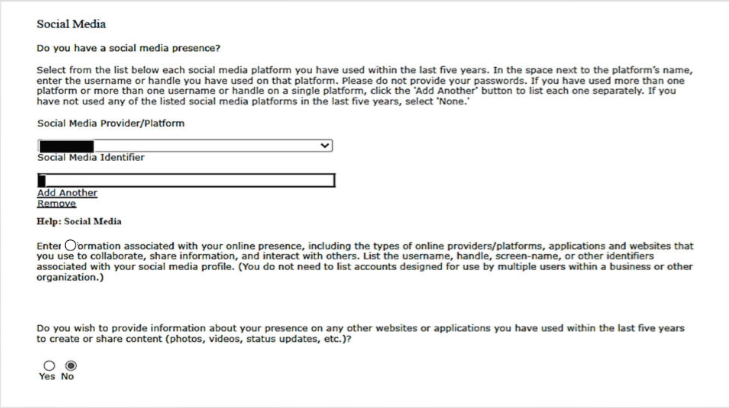
While the U.S. government’s approach might seem hard, it’s part of a larger effort to ensure safety and security in a world that’s increasingly interconnected through digital platforms. With this knowledge, you’ll be better prepared to explore the visa application process and avoid any unnecessary complications caused by your online presence.
Also check: What to Do When Your U.S. Visa Is Rejected?
FAQs
1. Do I really have to provide my social media account information for a U.S. visa?
Yes, if you're applying for a U.S. visa, the Department of State requires you to provide social media account information from the last five years. This is mandatory for both non-immigrant and immigrant visa applicants. You’ll need to list the platforms you've used and your usernames/handles. You are not asked for passwords or private content.
2. What if I don’t have any social media accounts—will my visa be denied?
If you don’t have any social media accounts, you can select "None" on the visa application form. There’s no penalty for not using social media, but lying about not having any accounts could lead to visa denial. So, always be honest!
3. What happens if I forget to include a social media account on my visa application?
If you forget to list a social media account, and it’s discovered later, this could be seen as an attempt to hide information, which may result in a visa denial. It’s best to review your social media activity before submitting your application to ensure all accounts are disclosed.
4. What social media platforms do I need to disclose on my U.S. visa application?
The U.S. visa application asks for information about the most commonly used social media platforms such as Facebook, Instagram, Twitter, LinkedIn, YouTube, Reddit, Pinterest, Tumblr, and others. If you've used a platform within the last five years, you need to list it. If you haven’t used any of the listed platforms, you can select “None.”
5. Can my visa application be denied because of what I post on social media?
Yes, if your posts indicate national security risks, criminal activity, or anything that contradicts the information provided in your visa application, it could lead to delays or a denial. For example, content linked to extremism, terrorism, or gang involvement may result in a visa denial.
6. Does the U.S. government review all my social media posts or just the public ones?
U.S. immigration authorities typically review publicly available content from your social media accounts. They will not access private messages or password-protected posts unless those posts are made public. However, be aware that anything you post publicly could be reviewed.
7. What should I do if I have posts on social media that might be misinterpreted?
If you have posts that could be misinterpreted or cause suspicion, it’s a good idea to delete them before applying. You should also consider tightening your privacy settings to limit access to sensitive or potentially problematic content.
8. Can the U.S. government check my social media accounts even if I make them private?
If your accounts are set to private, U.S. authorities will only be able to review the public content. However, if they suspect a discrepancy in your application, they may investigate further or request more information. It’s always best to be transparent and honest about your online activity.
9. What if I don’t have social media but my family or friends post about me online—can this affect my visa?
While posts made by family or friends about you are not part of the visa application review process, immigration authorities may look at publicly available content from people in your network. For example, if someone posts something controversial or negative about you online, it could be flagged. However, this is less common and usually doesn’t affect your visa unless it's directly related to a security concern.
10. Do visa officers check my social media before the interview, or only after?
U.S. visa officers may check your social media before, during, or after your visa interview. Typically, the review of your social media accounts happens before the interview as part of the vetting process, but it could also come up if there are any discrepancies or concerns raised during your interview.
11. Can social media activity impact my visa if I’m applying for a student visa?
Yes, your social media activity can be scrutinized during the application process for any type of visa, including student visas. If your social media suggests behavior inconsistent with the purpose of your visa (for example, promoting extremist views or engaging in illegal activities), it could impact your chances of approval.
12. What should I do if I don’t want to disclose my social media?
You are required by law to disclose social media accounts on your visa application if you’ve used them within the past five years. Failing to disclose or lying about your social media activity can lead to visa denial or even a permanent ban from the U.S. If you have privacy concerns, it’s better to review your social media accounts, remove any potentially damaging content, and ensure your accounts are set to private.
